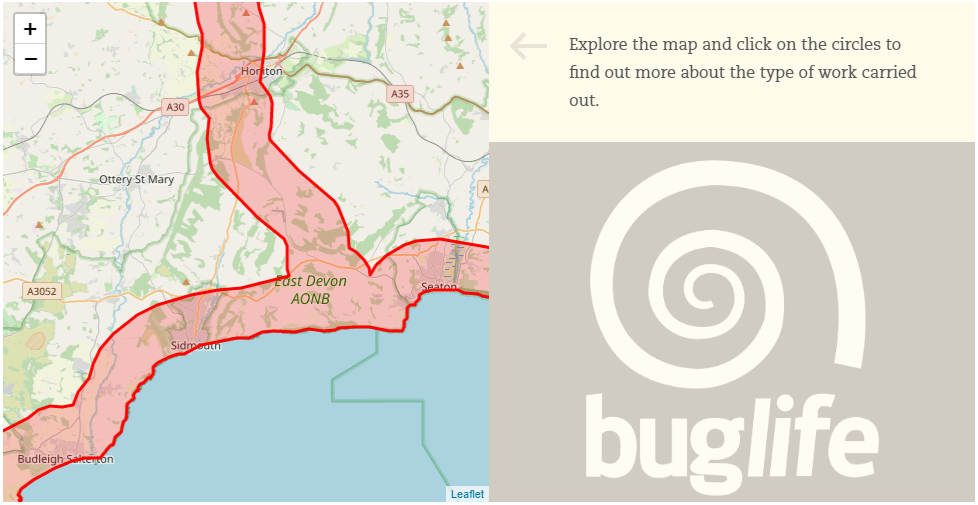“The South West of England is of national importance for bees and other pollinating insects due to the unique conditions resulting from a combination of a favourable climate and great diversity of high quality habitats”
.
We need to look after our wildflower habitats:
Promoting wildflowers in the Sid Valley – Vision Group for Sidmouth
.
And wildflowers need pollinators.
Buglife is the group which looks after our insects and other invertebrates – and it has just launched a project:
Buglife hopes to help restore and create at least 150,000 hectares of wildflower pathways with the launch on Monday of its B-lines network for England. B-Lines are a strategically mapped network of existing and potential wildflower habitats that criss-cross the country. The 3km-wide corridors stretch from the coast to the countryside and towns and cities, covering in total some 48,000 sq km of England.
Making a beeline: wildflower paths across UK could save species | Environment | The Guardian
.
B-Lines South of England
The South of England West is of national importance for bees and other pollinating insects due to the unique conditions resulting from a combination of a favourable climate and great diversity of high quality habitats like coastal cliffs, sand dunes, wildflower grasslands, heathland and moorland, expanses of chalk downland, lowland heathland, coastal and floodplain marshes and important ex-industrial (brownfield) habitats. Pollinators are extremely valuable to farmers due to the region’s major fruit-growing and arable areas.
B-Lines South of England | Buglife
.
Sidmouth and much of East Devon lies on these B-Lines:
.
.
